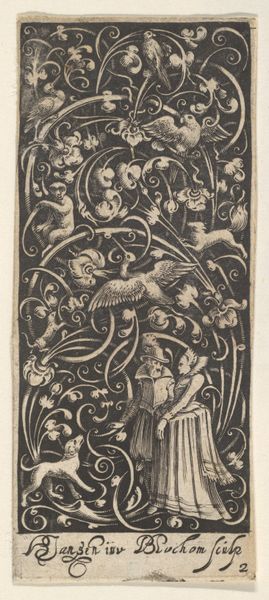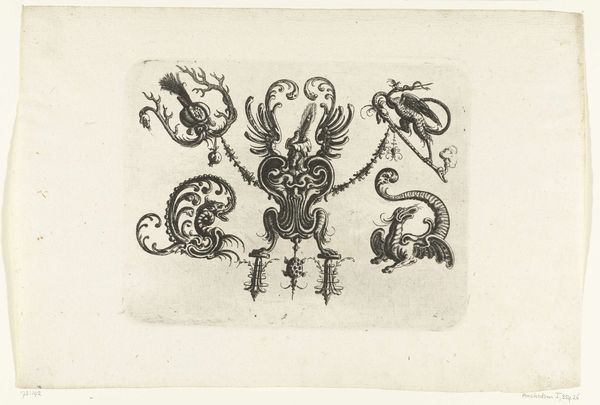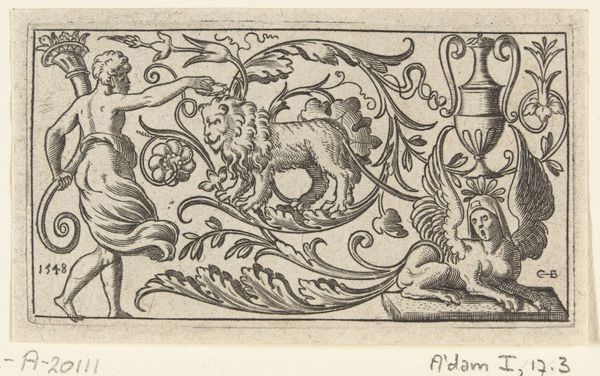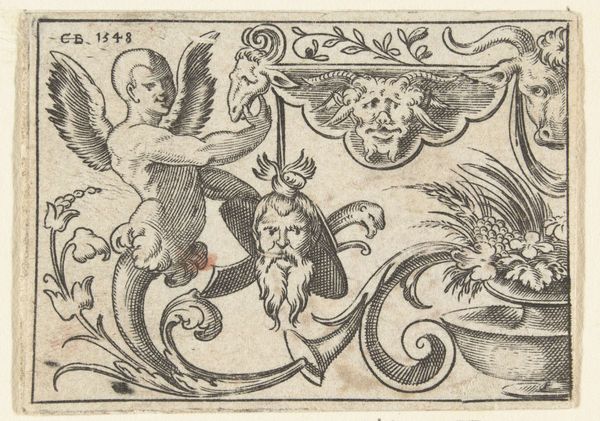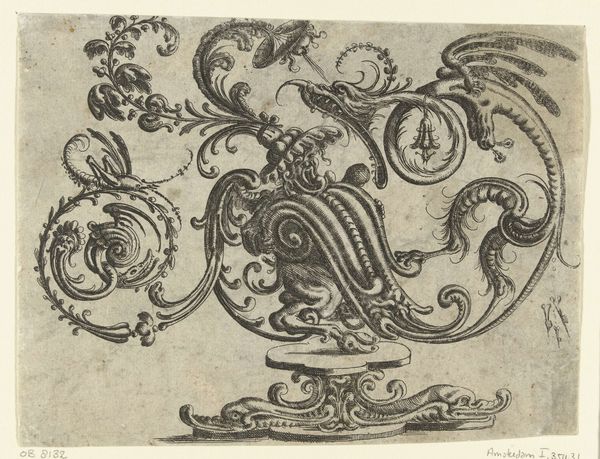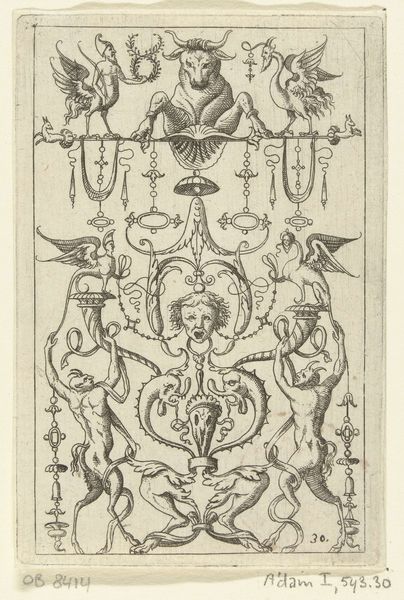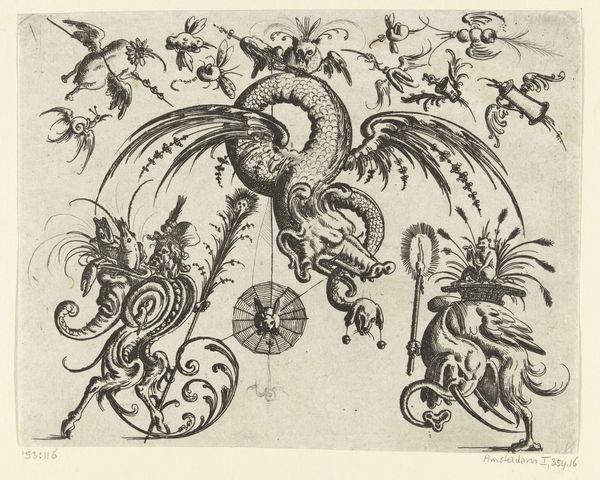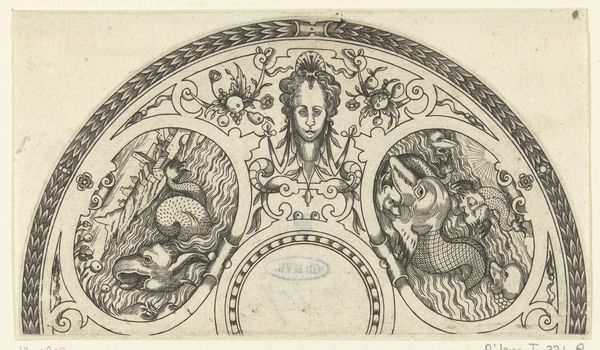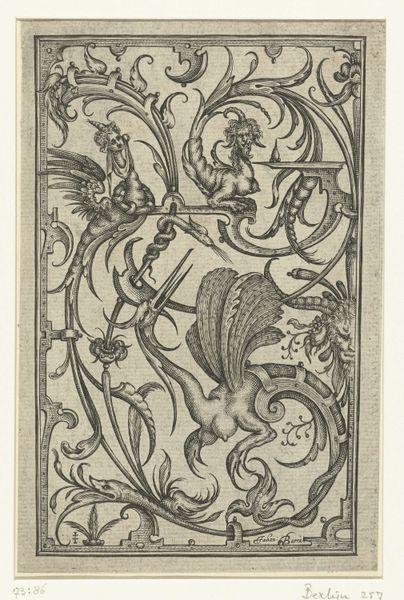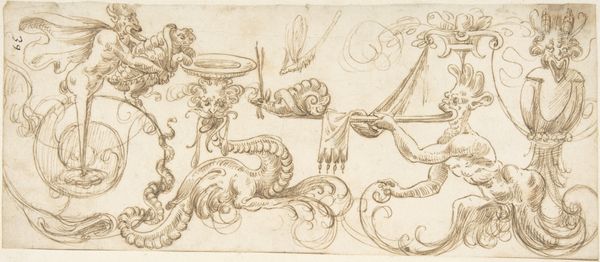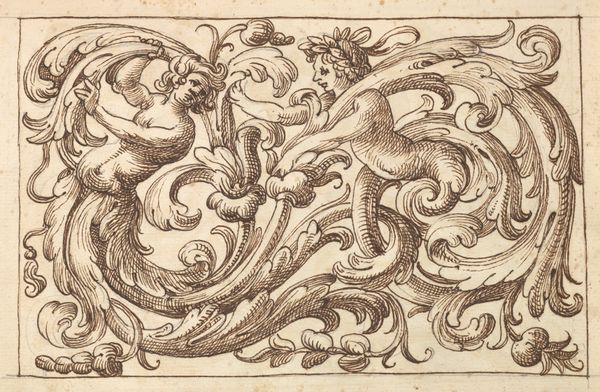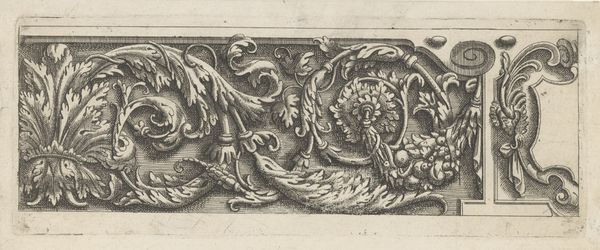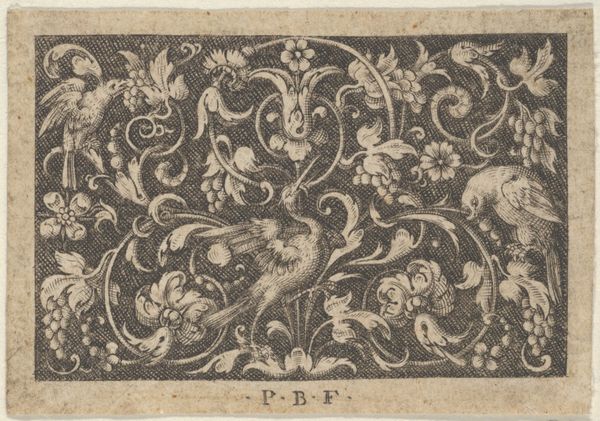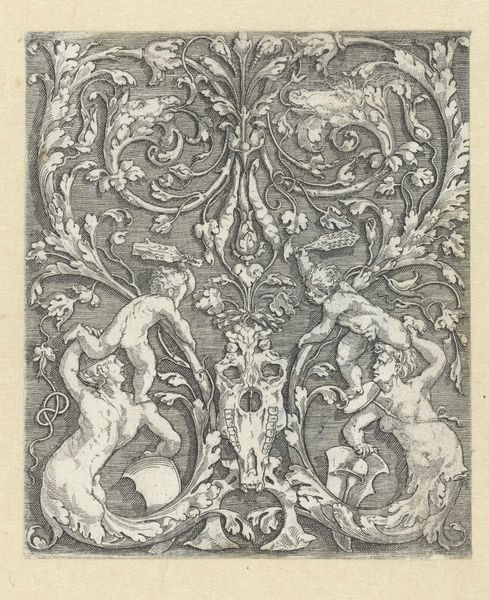
drawing, print, ink, engraving
#
drawing
#
allegory
#
pen drawing
# print
#
form
#
11_renaissance
#
ink
#
geometric
#
line
#
engraving
Dimensions: height 47 mm, width 81 mm
Copyright: Rijks Museum: Open Domain
This Guirlande, made in 1548 by an anonymous artist, is an engraving on paper. The material is modest, but the level of skill is quite high. The term “engraving” implies a method of cutting lines directly into a metal plate, which then receives ink and transfers the image onto paper, but here the quality of the line suggests the use of etching. In this process, the metal plate is coated with a waxy ground, the artist scratches through this to expose the metal, and then the plate is bathed in acid, which bites away the exposed lines. The result is a kind of drawing with acid. The design suggests a close connection to the decorative arts: prints like this were used to disseminate ornament, allowing artisans to copy and adapt fashionable motifs. By understanding the processes used in creating the work, and how it was part of a cycle of reproduction and consumption, we can appreciate its wider significance.
Comments
No comments
Be the first to comment and join the conversation on the ultimate creative platform.
